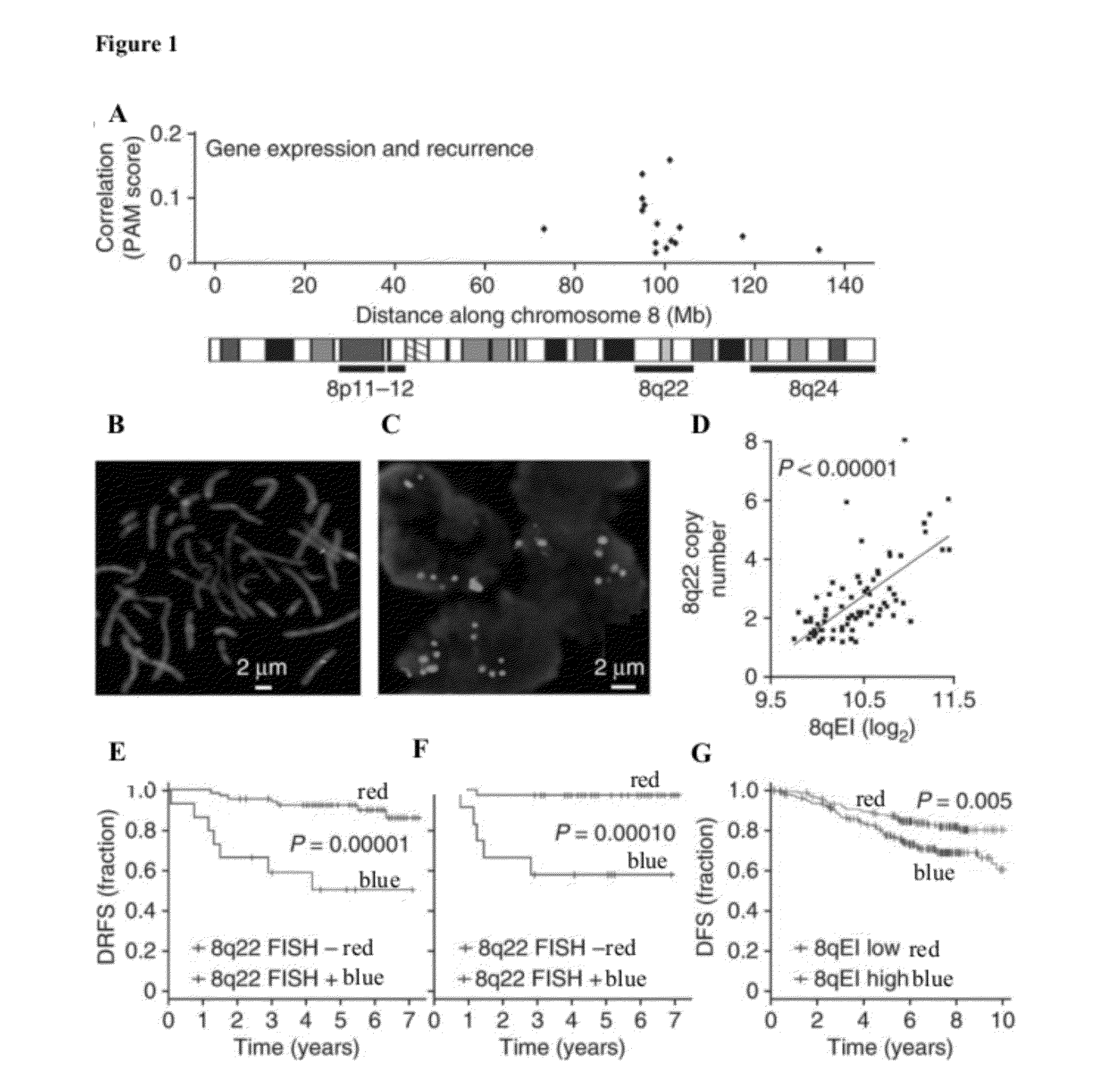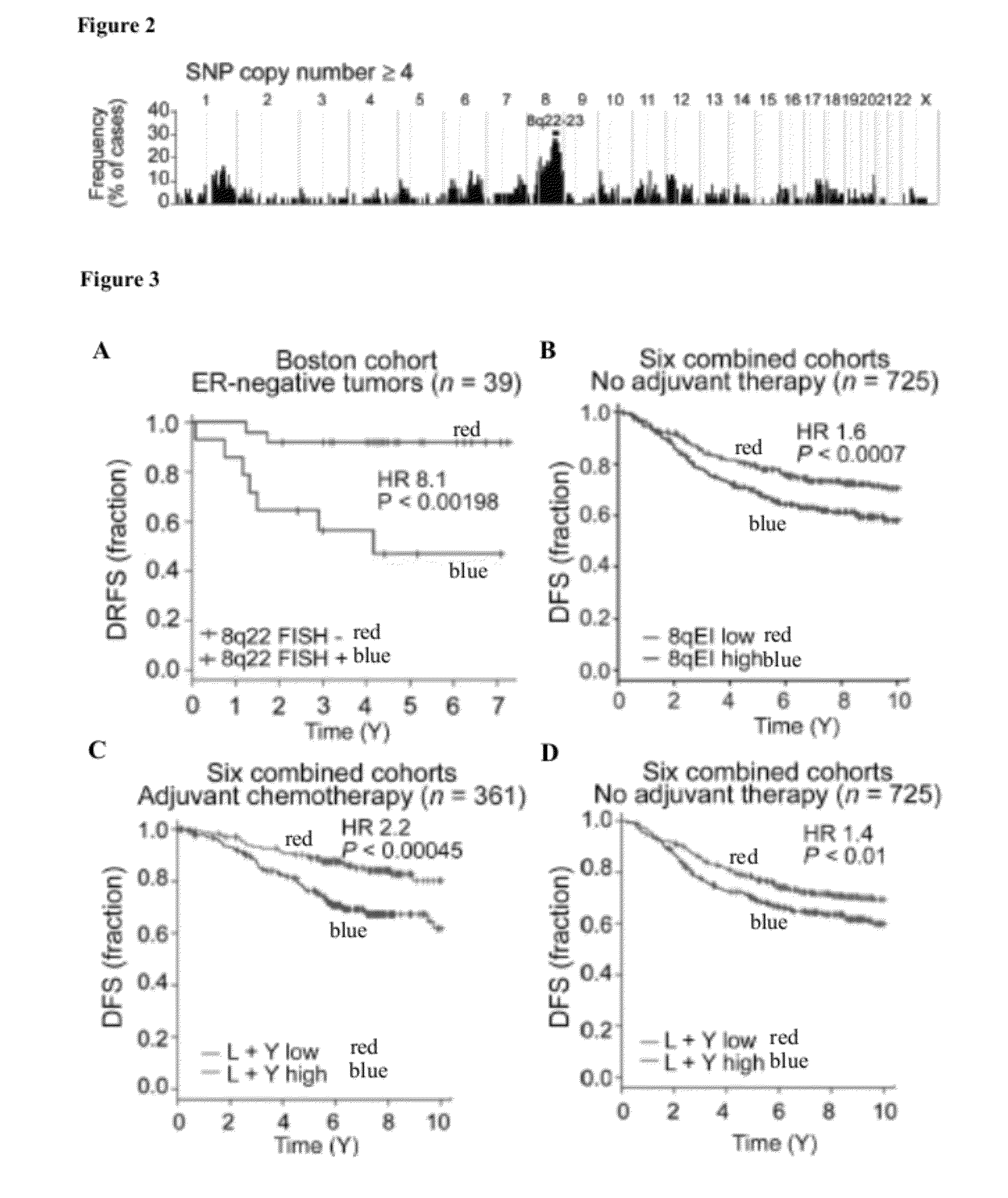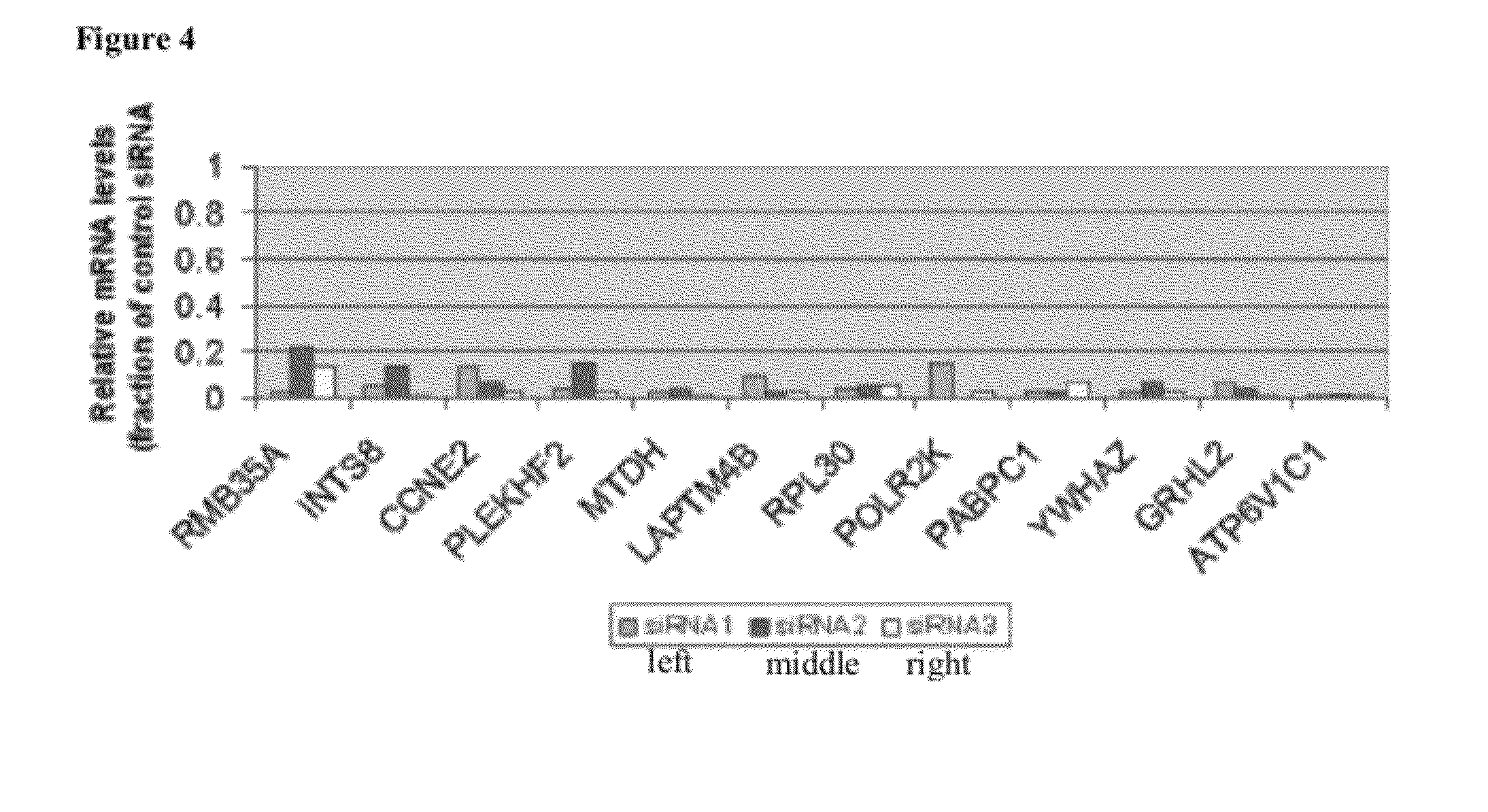Compositions, Kits, and Methods for Predicting Anti-Cancer Response to Anthracyclines
- Summary
- Abstract
- Description
- Claims
- Application Information
AI Technical Summary
Benefits of technology
Problems solved by technology
Method used
Image
Examples
example 1
Materials and Methods Used in Examples 2-6
[0268]A. Cohort
[0269]Primary breast tumors of 115 subjects were obtained from the U.S. National Cancer Institute-Harvard Breast Specialized Program Of Research Excellence blood and tissue repository under protocols approved by the DF / HCC Institutional Review Board, with informed consent from subjects. Affymetrix U133 plus 2 gene expression array analysis was performed as previously described (Matros et al. (2005) Breast Cancer Res. Treat. 91, 179-186; Lu et al. (2008) Breast Cancer Res. Treat. 108, 191-201). A subset of 85 tumors was represented in tissue microarrays and these were used for FISH analysis according to methods described further below. 50 of the cases were analyzed by Affymetrix 10K SNP array as previously described (Richardson et al. (2006) Cancer Cell 9, 121-132; Wang et al. (2004) Cancer Res. 64, 64-71). A portion of the SNP and gene expression data was reported previously (Matros et al. (2005) Breast Cancer Res. Treat. 91, ...
example 2
8q22 Copy Number Aberrations and Overexpression of 8q22 Genes in Various Tumors
[0298]Gene expression profiles of 115 breast carcinomas from women diagnosed between 2000 and 2003 and treated according to current guidelines, including adjuvant chemotherapy if indicated, were analyzed. Predictive analysis of microarrays (PAM) (Tibshirani et al. (2002) Proc. Natl. Acad. Sci. USA 99, 6567-6572) analyses were performed and 114 probes were identified, encoding 75 known genes, differentially expressed between cases with early distant metastatic recurrence and cases without distant recurrence (Table 1). Fifteen percent of these probes, corresponding to 12 different genes, mapped to chromosome 8q22, the only chromosomal region with statistically significant enrichment (P−9) of probes associated with metastatic recurrence (FIG. 1A).
[0299]An alternative gene selection method based on Cox proportional hazard regression (Tibshirani et al. (2002) Proc. Natl. Acad. Sci. USA 99, 6567-6572; Wang et a...
example 3
YWHAZ and LAPTM4B Gain-of-Function Significantly Increase Tumor Sensitivity to Anthracyclines
[0302]To determine whether 8q22 genes influence sensitivity to chemotherapy, the breast cancer cell line BT549 harboring chromosome 8q22 amplification was treated with siRNA specific for the 12 candidate genes (FIG. 4) and screened for alteration of sensitivity to chemotherapeutic drugs (FIG. 5A). Depletion of two genes in particular, YWHAZ and LAPTM4B, significantly increased the sensitivity to anthracyclines (FIG. 5A). YWHAZ codes for a known antiapoptotic protein, 14-3-3ζ (Niemantsverdriet et al. (2007) Oncogene 27, 1315-1319; Neal et al. (2009) Cancer Res. 69, 3425-3432). LAPTM4B encodes a recently described lysosomal protein called lysosomal associated protein transmembrane 4B, about which little is known with regard to breast cancer.
[0303]Sixteen breast cancer cell lines were examined and found to have a strong positive correlation between higher endogenous LAPTM4B mRNA level and highe...
PUM
| Property | Measurement | Unit |
|---|---|---|
| Time | aaaaa | aaaaa |
| Structure | aaaaa | aaaaa |
| Electrical resistance | aaaaa | aaaaa |
Abstract
Description
Claims
Application Information
 Login to View More
Login to View More - R&D
- Intellectual Property
- Life Sciences
- Materials
- Tech Scout
- Unparalleled Data Quality
- Higher Quality Content
- 60% Fewer Hallucinations
Browse by: Latest US Patents, China's latest patents, Technical Efficacy Thesaurus, Application Domain, Technology Topic, Popular Technical Reports.
© 2025 PatSnap. All rights reserved.Legal|Privacy policy|Modern Slavery Act Transparency Statement|Sitemap|About US| Contact US: help@patsnap.com



